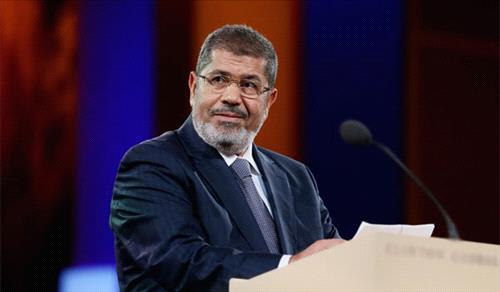Ammon News - AMMONNEWS - A study published by the Israeli National Security Research Center concluded that Iran is the biggest beneficiary of Saudi's crackdown on the Muslim Brotherhood and other Sunni Islamic movements viewed by Saudi as an existential threat to its political regime.
The study, titled "Political Islam in a state of Self-Defense", has been conducted by Oded Eran, former Israeli Ambassador to Jordan and the European Union, and Joel Josenski, Head of Gulf Affairs at the NSRC.
The study did not rule out the possibility of Saudi failure to stave off the influence of the Muslim Brotherhood.
According to the study, the latest Gulf measures against Sunni Islamist movements have bolstered Iran's standing in the region. In other words, the internal GCC polarization allows Tehran a greater margin to maneuver, especially in light of the declining influence of the US in the region.
The GCC crisis is the most critical since its establishment in 1981, the writers argued, noting that it reflects the level of Saudi disappointment over Qatar's attitudes.
The study pointed out that KSA is the most decisive in confronting Sunni Islamists, aiming to prevent them from mobilizing the public against the ruling family. It added that GCC countries' domestic and foreign policies are largely defined by their stance towards the MB and its allies.
What worries the Saudi royal family, as the study puts it, is its conviction that the MB seeks to establish a new political system based on the will of the people expressed through the ballot box, rather than the mere emphasis on the religious façade of the system. This is precisely why Saudi rulers backed the military coup against Mohamed Morsi who hails from the Muslim Brotherhood. The Saudi regime, through its support to the Egyptian coup, sought to hinder a potentially successful Islamist experience that combines democracy and Islamic references, the researchers suggested.
They added that Saudi financial and political backing of the military-led regime in Egypt has played a decisive role to the extent that the Kingdom fought a political battle against the US administration in order to ensure its support for the coup leaders.
Seeking to delegitimize the Muslim Brotherhood, Gulf regimes claim that Sunni Islamists contradict the tribal nature of Gulf society, thus threatening the special status enjoyed by elites who lead these tribes. The UAE's trial of Al-Islah association's members reflects that trend, the researchers added.
The study pointed to Saudi leadership's belief that Qatar's policies weaken important Saudi allies, particularly the Egyptian post-coup regime. Not only does Qatar grant asylum to MB leaders, but it also allows their ideologue Qaradawi to deliver a weekly sermon in which he usually criticizes Gulf rulers.
The researchers pointed to the fact that Qatari-Saudi relations have started to deteriorate since the ascension of Sheikh Hamad Bin Khalifah to power in 1995.
Additionally, the Jordanian regime has so far survived thanks to the support of Saudi Arabia, despite the historical conflict between the Saudi and Jordanian royal families. Saudi supports the Jordanian regime to prevent the Muslim Brotherhood from benefiting from a power vacuum in Jordan, the researchers opined.
According to the Israeli study, there is no guarantee that Saudi strategy would achieve its objectives, given the huge challenges facing the regime, particularly the Iranian threat, the generational change within the Saudi royal family, Shiite rebellion in eastern Saudi Arabia and northern Yemen, potential transformations in the international energy market, as well as the repercussions of Chinese and Russian attempts to refill the gap left by the US in the region.
Iran, according the study, is the biggest beneficiary from the GCC crisis because the internal Gulf disputes are hindering the formation of a unified front before Iran.
The study concluded that shoring up the regimes in Egypt, Jordan and the Gulf would serve Israeli interests.
*Middle East Monitor
